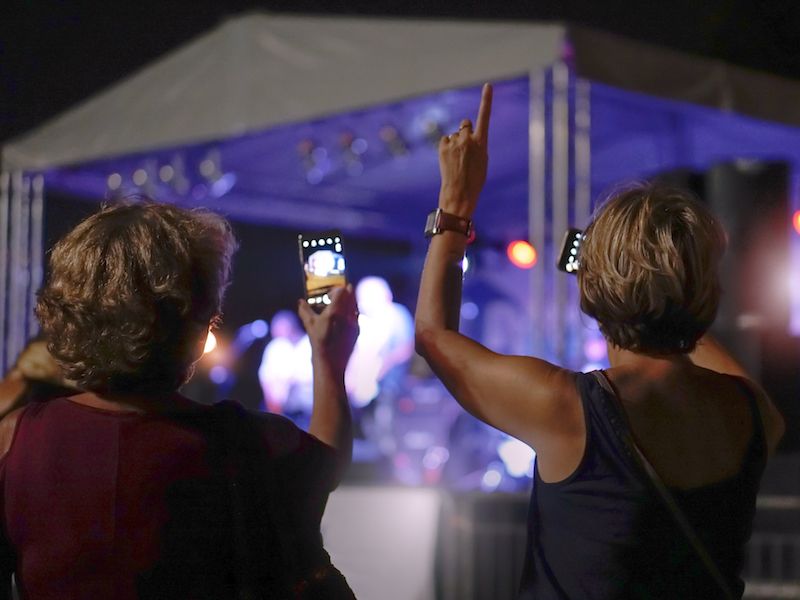
We’ve been getting excited about summer activities all year: trips to the beach, chilling out by the pool, and impaired hearing? You might find yourself in environmental scenarios or subjected to other loud noises this summer that can be hidden hazards to your hearing. Any sounds above 80 decibels can lead to injury to your ears, while swimming in pools or other bodies of water can bring about irreversible hearing loss. You need to take precautions and be mindful of your surroundings in order to safeguard your hearing this summer. Keep reading to learn the summer’s 6 hidden dangers to your hearing.
Use Ear Protection at Concerts
Whether you’re at an indoor venue or an outside concert venue you still should wear ear protection during concerts. 90 decibels is in the danger zone for hearing injury and live music reaches this volume even when you’re at outdoor venues. That’s the reason it’s always a good strategy to use earplugs regardless of whether you’re seeing a concert outdoors or indoors. You can still hear the sounds with earplugs in it’s just dampened a little. If you’re going to a concert with young kids, think about getting them a heavy duty pair of earmuffs because kids have more vulnerable ears than adults.
Fireworks Are More Than Just Loud
Honestly, there are a lot of reasons to avoid fireworks in the summer. It’s not exclusively the 4th of July shows which are professional that can damage your ears, we mean the backyard fireworks which every summer season cause hundreds of accidents. Home fireworks reach decibel levels of over 155 which can damage your ears on top of causing hand injuries, loss of sight and home fires. This year, on the 4th of July, enjoy the fireworks from a little further away and leave the fireworks to the pro’s.
Hearing Loss Can be Brought About by Lawnmowers
If you love to take care of your lawn, mower, edger, and trimer are your best friends. But this muffled feeling in your ears is a signal that your hearing has taken damage. That’s because the lawn tools, which are constantly loud, impact your hearing over time. You may have noticed landscapers wearing some form of hearing protection, you should take a cue from them and use earmuffs or earplugs next time you work on your lawn to ensure your hearing doesn’t get injured.
How to Safeguard Your Ears When You’re at Beaches And Pools
Huge numbers of people suffer from swimmer’s ear each summer, which happens when the ear canal traps water which is high in bacteria. Painful earaches and swelling are the result when the bacteria infects the ear. It’s not exclusively lakes and rivers that contain these bacteria, they can sometimes be found in hot tubs and pools if they are not cleaned and treated properly. No lasting damage should occur if you have your hearing assessed by a hearing specialist. To counter swimmer’s ear, though, you will want to wear specialized swimming earplugs in the pool and have your pool water tested to make certain the chemical balance is safe.
Boats and Other Water Sports
If you enjoy the water, summer is beach and boating time for you. But, jet ski and boat engines are often noisy,they can get up to over 100 decibels. Lasting hearing damage can happen after around 15 minutes of exposure to that kind of noise. Once more, it’s really a smart decision to wear a set of throw away, foam earplugs while you’re out on the water to make sure you don’t unwittingly injure your hearing.
Your Ears Can be Damaged by Car Races
It doesn’t matter what kind of auto racing you enjoy, midget, Formula 1, drag racing, motorcycle Formula 1. Every one of them can cause a huge problem for your hearing if you go to many races during the summer season. It’s calculated that sound levels can exceed 120 decibels at some races, which is absolutely inside the danger zone for hearing impairment. Earplugs are your best bet at these races, whereas your kids should definitely wear the earmuffs which were mentioned earlier. Otherwise, you might not get to enjoy the sound of those engines in the future.